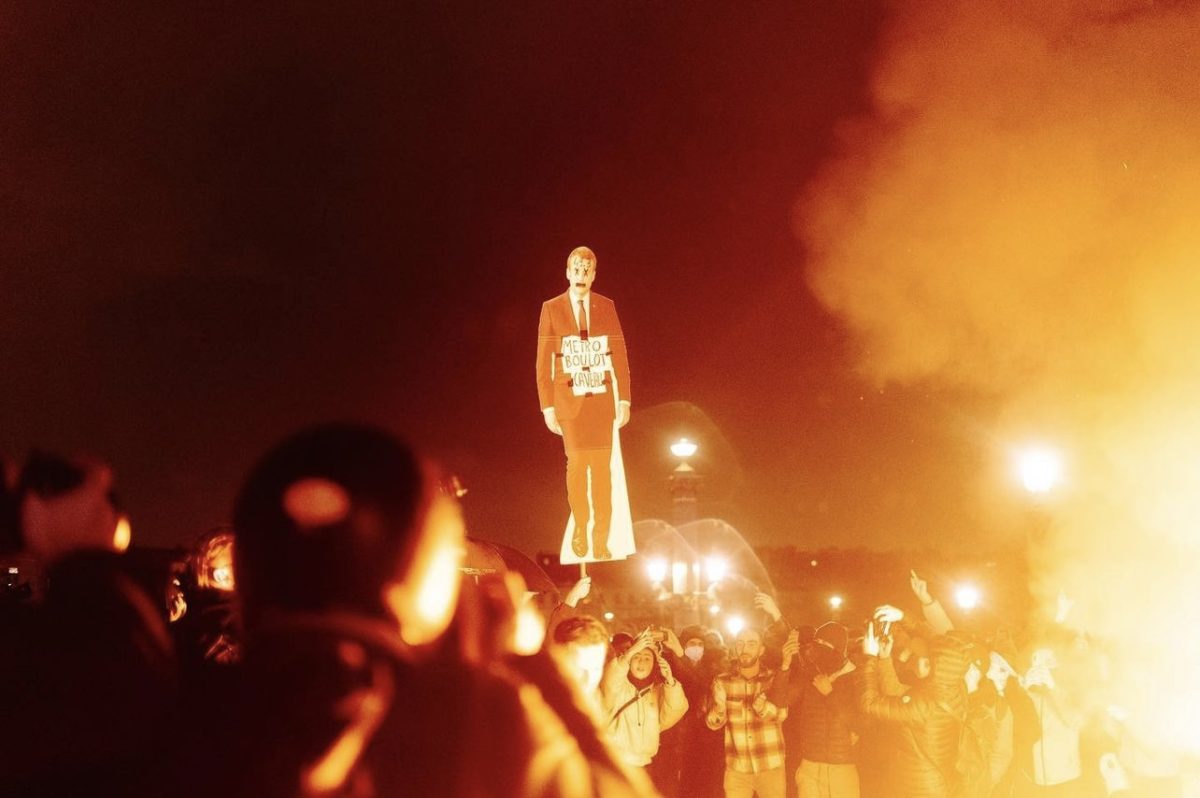What the French protests mean to an American in Paris
May 5, 2023
The French are known for their style, gastronomy and romance but perhaps, most famously, their protesting. During my time in Paris, I have seen graffitied buildings, mountains of trash, and transportation strikes against France’s new pension reform, which left me awe-struck.
On Jan. 10, Prime Minister Elizabeth Borne announced a two-year increase to the French pension plan. This reform means the French will have to work at least two years longer to receive their pension, but others, who may have paused their careers to raise a family or continue their education, will have to work even longer to obtain the benefits. Jean-Luc Mélanchon, leader of the left-wing political party LFI (La France Insoumise), said this legislation “is a serious social regression.”
In response to the announcement, Paris and the rest of the country has been protesting primarily through transportation strikes but also through trash strikes or demonstrations in the street. While the U.S. frequently protests against the government, it is rarely, if ever to the scale or consistency of the French. Euronews claimed that France is one of the most active European countries when it comes to protesting with 79 days of strikes between 2020-2021 and a combined 255 days of strikes between 2000-2019.
Safe to say, I was fully prepared to experience the true political spirit of the French before I arrived in the country for my study abroad program, but I did not expect it to be so affecting. Watching a nation so involved with their government and provoking genuine response from lawmakers has been inspiring.
When the reform was voted through Parliament on March 16 with the use of Article 49.3, it was followed by two separate no-confidence votes. Though President Emmanuel Macron’s government survived the votes of no-confidence, it is impressive that lawmakers were so quick to challenge their leader and his democratic practices.
In contrast to the French government, two Democratic lawmakers in the U.S. were expelled from Tennessee’s House of Representatives in early April after leading gun control protests following the tragic shooting in Nashville. CNN reports that these lawmakers “were blocked from raising the issue of gun violence on the House floor, with their microphones being cut off whenever they raised the topic.” It is clear after living in Paris for over four months now, that the populace are heard and valued by their government in ways that Americans are not.
In an interview with Shravya Vasireddy, a Political Science major at Vanderbilt University and a fellow American abroad, she said that “maybe [the protests are] more effective because their government has listened to them in the past…this is such a big deal because it is unusual that the government goes against them.” She explained that while U.S. citizens also have the right to protest, they are not as supported or protected by the Constitution to act on the scale of the French.
When asked about how these protests affect her as an American, Vasireddy stated that she “feels like we lost something.” Americans don’t have the support of the government such as paid-time like the French do or even the numbers to make protesting effective in non-urban environments. It would be impossible for protests on the scale of what’s happening in Paris to exist in even the most densely populated regions of the U.S.
The solidarity and tenacity of the French people in times of protest is remarkable. In early March, a trash strike began which lasted three weeks and resulted in thousands of tons of trash on the street. I remember walking through the Latin Quarter one evening and seeing walls of trash blocking the Notre Dame Cathedral. It was beginning to rain and the night was a bit warm, so a strong scent began to waft through the Paris air. I thought that if Parisians could live with the smell then so could I. So, I side-stepped along the small streets and appreciated how these people could sacrifice their own comfort for the greater-good.
While the protests continue on, it seems as though the battle against the reform is already lost as Macron signed the bill into law on April 15. Despite the success of the pension reform, the protests against it have shown me and other Americans abroad that our voices should be heard. We need to be more vocal and work together to enact the change that we want to see within our own government just as the French do. Though the protests were not successful, they have proved the importance of social demonstration and camaraderie towards something larger than one’s self.












